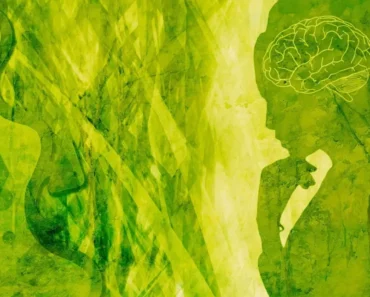Texting Anxiety: How Screens Fuel Overthinking. This guide explores the modern phenomenon of stress induced by digital communication, delving into why screens exacerbate overthinking and offering practical strategies to cultivate calmer, more confident interactions.
Understanding Texting Anxiety: The Silent Stressor
In our hyperconnected world, texting has become a primary mode of communication. It offers convenience, instant connection, and a way to stay in touch without immediate verbal interaction. Yet, for many, the simple act of sending or receiving a text message triggers a disproportionate amount of stress and overthinking. This phenomenon is commonly known as Texting Anxiety. It transforms casual digital exchanges into a source of significant emotional distress.
Texting Anxiety involves persistent worry, overanalysis, and self-doubt related to text-based conversations. It manifests as endless rereading of sent messages, obsessive checking for replies, or intense rumination over the meaning behind a few typed words. This pervasive anxiety can affect personal, professional, and romantic relationships, creating a subtle barrier to genuine connection.
The asynchronous nature of texting, combined with a lack of non-verbal cues, often fuels this overthinking. Without tone of voice, facial expressions, or body language, messages can be easily misinterpreted. This ambiguity leaves ample room for anxiety to flourish. Understanding the roots of Texting Anxiety is the first step toward managing its impact and fostering healthier digital communication habits.
Why Screens Fuel Overthinking: The Mechanics of Texting Anxiety
The very nature of screen-based communication contributes significantly to Texting Anxiety. Several inherent characteristics of texting can exacerbate tendencies toward overthinking and insecurity.
Lack of Non-Verbal Cues: The Ambiguity Gap
Texting strips away critical non-verbal cues present in face-to-face or even phone conversations. We lose the benefit of tone of voice, facial expressions, body language, and immediate context. These cues typically provide invaluable information, helping us interpret messages accurately. Without them, a simple phrase like “Okay” can be read as neutral, annoyed, or even sarcastic. This ambiguity leaves ample room for misinterpretation and fuels overthinking. The recipient fills in the blanks with their own anxieties, leading to Texting Anxiety.
This gap in information forces our brains to work harder to interpret meaning, often defaulting to worst-case scenarios when uncertainty exists.
Asynchronous Nature and Pressure to Respond
Texting is asynchronous; replies are not immediate. This delay creates a “waiting game” that can become agonizing. Our minds race through potential meanings of silence or delayed responses. This waiting period breeds rumination and self-doubt. The pressure to craft the “perfect” response before sending also contributes to overthinking. This unique characteristic is a primary driver of Texting Anxiety.
This constant on-call expectation can be mentally draining. It contributes to a persistent sense of anxiety related to digital communication.
Perfectionism and Over-Editing
The ability to type, delete, and retype messages before sending encourages perfectionism. Individuals might spend excessive time crafting a response, overanalyzing every word choice, emoji, or punctuation mark. This constant self-editing fuels overthinking about how their message will be received. It transforms simple communication into a high-stakes performance.
This pressure to be articulate and likable in text contributes to a cycle of anxiety. The fear of misinterpretation becomes intense, exacerbating Texting Anxiety.
Comparison Culture and Social Media Pressure
Social media often presents curated, idealized versions of communication and relationships. Seeing others’ seemingly effortless digital interactions can create pressure. Individuals might compare their own texting habits or perceived text-based rapport to unrealistic online standards. This comparison fuels insecurity. It contributes to feelings of inadequacy, which heighten Texting Anxiety.
The constant visibility of others’ online activity can trigger self-doubt about one’s own communication style or relationship status.
The Impact of Texting Anxiety on Relationships and Well-being
Beyond individual stress, Texting Anxiety can significantly impact relationships and overall mental health. Its subtle yet persistent presence erodes trust and quality of life.
Strained Relationships and Misunderstandings
Texting Anxiety often leads to strained relationships. Overthinking can cause individuals to misinterpret innocent messages, leading to unnecessary arguments or emotional distance. The fear of misunderstanding can also cause individuals to withdraw from texting, paradoxically hindering communication. This creates a cycle of confusion and frustration, making it harder to build intimacy.
Increased Stress and Mental Fatigue
Constant rumination about text messages consumes mental energy. It contributes to chronic stress, anxiety, and mental fatigue. The brain remains in a perpetual state of alert, waiting for a reply or analyzing past interactions. This sustained mental effort can lead to burnout, irritability, and difficulty concentrating on other aspects of life.
Erosion of Self-Confidence
Texting Anxiety often involves self-doubt about one’s communication abilities or perceived likability. Individuals might constantly second-guess their messages or feel inadequate if replies are slow or brief. This can erode self-confidence in social interactions, even offline. The constant need for validation through immediate responses can become debilitating.
Strategies to Conquer Texting Anxiety: Reclaiming Calm
Managing Texting Anxiety requires conscious effort and a shift in communication habits. These strategies help reduce overthinking and foster healthier digital interactions.
1. Set Digital Boundaries: Create Space from the Screen
Establish clear boundaries for your phone use. Designate tech-free times (e.g., during meals, an hour before bed) and tech-free zones (e.g., bedroom, dining table). Turn off notifications for non-essential apps to reduce constant urges to check your phone. This creates intentional space away from the screen, reducing triggers for Texting Anxiety. This conscious detachment helps regain control.
2. Practice Intentional Communication: Choose Your Medium Wisely
Before sending a text, consider if it is the best medium for your message. For important, sensitive, or complex conversations, opt for a phone call or face-to-face interaction. These richer forms of communication allow for immediate feedback and non-verbal cues, minimizing misunderstandings. Reserve texting for quick, factual exchanges. This intentional choice reduces ambiguity and prevents Texting Anxiety.
3. Challenge Anxious Thoughts: Question the Overthinking
When you feel Texting Anxiety setting in, challenge those anxious thoughts. Ask yourself: “Is there concrete evidence for this interpretation?” or “What is a more neutral or positive way to interpret this message?” Recognize that silence or brevity in texts often means nothing personal. Practice reframing negative assumptions. This cognitive shift helps break the cycle of overthinking.
4. Delay Immediate Responses: Break the Urge to Check
Resist the urge to reply immediately or to check for responses constantly. Give yourself a set time before responding to a text, or before checking if someone has replied. This practice helps train your brain to reduce its dependence on instant gratification. It reduces the pressure to perform in text. This deliberate delay can significantly reduce Texting Anxiety.
5. Communicate Your Needs to Close Contacts: Set Expectations
If Texting Anxiety significantly impacts your relationships, communicate your needs to trusted friends, family, or partners. Explain that you might take time to respond, or that you prefer calls for certain topics. Setting clear expectations can alleviate pressure on both sides. This open dialogue fosters understanding and reduces potential misunderstandings caused by differing communication styles.
6. Engage in Offline Activities: Redirect Your Focus
When you feel Texting Anxiety rising, consciously redirect your focus to offline activities. Go for a walk, read a book, engage in a hobby, or spend time with loved ones without devices. This helps break the cycle of rumination. It reminds your brain that satisfaction and connection exist beyond the screen. This redirection actively reduces anxiety.
7. Seek Professional Support: When Anxiety Becomes Overwhelming
If Texting Anxiety significantly impacts your daily life, relationships, or mental well-being, consider seeking professional support. A therapist or counselor can provide tailored strategies, such as cognitive behavioral therapy (CBT), to address underlying anxiety and develop healthier coping mechanisms. They offer guidance in managing digital communication effectively. This professional help provides crucial support.
Budgeting for Digital Well-being: Investing in Calm
Addressing Texting Anxiety does not require large financial outlays. Many effective strategies are free or low-cost, proving that investing in your digital well-being is accessible to everyone.
Free Strategies: Leveraging Mindfulness and Communication
Many powerful strategies cost nothing. Practicing mindfulness about phone use, setting personal boundaries, engaging in direct communication with loved ones, and actively challenging anxious thoughts are all free. These behavioral shifts are highly effective in reducing Texting Anxiety. They emphasize personal discipline and awareness.
Affordable Tools: Apps and Books for Support
Numerous apps offer features for digital well-being, screen time tracking, or mindfulness exercises (some free, some subscription-based, usually under $10/month). Books on anxiety or communication also provide valuable insights, often available from libraries or as affordable e-books. These tools support your efforts without significant expense.
Professional Support: A Worthwhile Investment
If Texting Anxiety severely impacts your life, professional therapy is a worthwhile investment. Costs vary. Many therapists offer sliding scale fees. Health insurance often covers a portion of therapy costs. Online therapy platforms can also be more affordable than in-person sessions (typically $60-$150/session). This investment provides personalized guidance for lasting change.
Related Posts: Therapy Apps vs. Traditional Counseling: Pros
Caring for Your Digital Habits: Nurturing a Calmer Mind
Maintaining healthy digital habits requires ongoing self-awareness and consistent effort. Nurturing a calmer mind in the face of constant digital communication is an investment in your overall well-being.
Regular Digital Check-ins: Self-Assessment
Periodically assess your relationship with your phone. How often do you check it? Do you feel anxious if you do not receive immediate replies? Are your conversations fulfilling? These self-check-ins help identify patterns contributing to Texting Anxiety. They allow you to adjust your habits proactively. This regular review helps maintain a healthy balance.
Practice Digital Detoxes: Short Breaks for Clarity
Consider short digital detoxes. This might be a few hours each day, a full day on weekends, or even a week-long break during vacation. Stepping away from screens completely helps reset your relationship with technology. It allows your mind to decompress and reduces the constant mental alerts associated with Texting Anxiety. These breaks offer clarity and perspective.
Communicate Boundaries to Others: Mutual Respect
If you are practicing digital boundaries or a slower response time, communicate this to close contacts. A simple message like “I’m trying to be more present, so I might not reply immediately” can set expectations. This fosters mutual respect and reduces their potential overthinking about your response times. This open communication supports your efforts and reduces Texting Anxiety for both parties.
Latest Innovations in Digital Well-being Tools
The technology industry increasingly recognizes the impact of digital habits on mental health. New innovations offer tools and features designed to support digital well-being and combat issues like Texting Anxiety.
Screen Time Management Features
Smartphone operating systems now include built-in features for screen time tracking and management. Users can monitor their app usage, set daily limits for specific apps, and schedule downtime. These tools provide data to raise awareness about digital habits. They offer automated ways to enforce personal boundaries, helping to reduce Texting Anxiety.
These features empower users to take control of their digital consumption.
Mindfulness and Digital Detox Apps
A growing number of apps focus specifically on mindfulness, meditation, and digital detoxes. They offer guided exercises to help users be present. They provide tools to block distracting notifications temporarily. Some apps even gamify the process of reducing screen time, making it more engaging. These resources actively help manage Texting Anxiety.
These tools provide practical support for developing healthier digital habits.
AI-Powered Communication Coaching
Emerging AI tools explore coaching for communication skills. While not a substitute for therapy, these tools could analyze text patterns. They might suggest alternative phrasing to reduce ambiguity or recommend different communication mediums. This type of AI could provide personalized tips for more effective and less anxiety-inducing interactions.
This innovation could offer proactive support in navigating digital communication challenges.
Making Your Final Decision: Cultivating Calm in Digital Communication
Conquering Texting Anxiety requires intentional effort and a commitment to transforming your relationship with digital communication. Focus on strategies that promote mindfulness, clear communication, and emotional well-being.
Prioritize setting digital boundaries. Choose tech-free times and zones. This creates invaluable space for presence and reduces the constant pressure to be online.
Consider the clarity of your communication. Opt for richer mediums like phone calls for important or sensitive topics to minimize ambiguity. This reduces the risk of overthinking and misunderstandings.
Do not overlook the power of self-awareness. Challenge anxious thoughts when they arise. Understand that a delayed response often has nothing to do with you. Your interpretation shapes your anxiety.
Remember, the goal is not to eliminate texting, but to make it a tool that serves you, not stresses you. When you manage Texting Anxiety effectively, you gain peace of mind and improve your relationships.
Embrace Calm: Mastering Digital Communication
Texting Anxiety is a common modern challenge, but it is one you can actively manage. By understanding how screens fuel overthinking and implementing conscious strategies, you reclaim control over your digital interactions.
Take time to practice digital boundaries. Choose your communication medium wisely. Remember that your peace of mind is paramount in the hyperconnected world.
As you embark on this journey toward calmer digital habits, remain patient with yourself. Adapting ingrained behaviors takes consistent effort. Every step toward mindful use reduces anxiety.
By applying these insights, you transform your relationship with texting. You reduce overthinking. You foster clearer communication. You enjoy stronger, more authentic connections, free from the grip of Texting Anxiety.
Frequently Asked Questions About Texting Anxiety
What causes Texting Anxiety?
Texting Anxiety often stems from the lack of non-verbal cues in text messages, the asynchronous nature of communication (leading to overthinking about delayed replies), pressure to craft perfect responses, and comparison to idealized online interactions seen on social media.
How can I stop overthinking text messages?
To stop overthinking, practice delaying responses, challenge anxious thoughts by seeking objective evidence, and consider calling or meeting in person for important conversations to reduce ambiguity. Redirect your focus to offline activities when feeling anxious.
Are digital detoxes effective for Texting Anxiety?
Yes, short digital detoxes can be very effective. Stepping away from screens for a few hours, a day, or even longer helps reset your brain’s dependence on instant gratification. This reduces the constant mental alerts and can significantly lower overall Texting Anxiety.
Should I communicate my Texting Anxiety to friends or partners?
Yes, communicating your needs to close contacts can be very helpful. Explain that you might take longer to reply or prefer calls for certain topics. This sets realistic expectations and reduces their potential for misinterpretation, fostering mutual understanding and support.
When should I seek professional help for Texting Anxiety?
If Texting Anxiety significantly impairs your daily life, relationships, or leads to severe emotional distress, consider seeking professional help. A therapist can provide tailored strategies, like cognitive behavioral therapy (CBT), to address the underlying anxiety.






Your article helped me a lot, is there any more related content? Thanks! https://accounts.binance.com/uk-UA/register-person?ref=XZNNWTW7